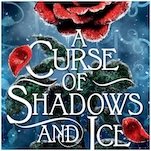The Curmudgeon: An Ode to Gravel-Throated Singing
How can something so technically wrong sound so emotionally right?

Anyone who has ever dared to growl during a vocal lesson with a classically trained coach will never forget the look—as if a cockroach had just been swallowed—on the teacher’s face. Once the bug has been digested, the warnings soon follow about making ugly sounds and ruining one’s voice.
One is left to wonder how a way of singing that is so technically wrong can sound so emotionally right. And how can gravel-voiced singing be wrong when it has produced some of the greatest moments in pop music history?
Sure, there is something thrilling in a voice so clean that the notes seem to slide out without friction to fill the air with a pure tone that sounds as if it were produced by intention and feeling alone without the need of a body. But there’s something equally thrilling in a growling voice where each note seems to fight its way through a gauntlet of obstacles as it passes from the chest through the throat and mouth.
-

-

-

-

-

-

-

-

-

-

-

-

-

-

-

-

-

-

-

-

-

-

-

-

-

-

-

-

-

-

-

-

-

-

-

-

-

-

-

-








































